Beige Capital: Savings and Loans Company in Ghana
Beige Capital is a savings and loans company licensed by the Bank of Ghana, which is part of the Beige Group, an investment firm that operates businesses across different sectors of the economy, such as banking, finance, hospitality, mining, real estate and logistics.
Interview with Michael Nyinaku, CEO of Beige Capital and the Beige Group
You are a successful entrepreneur in Ghana. How do you assess entrepreneurship in Ghana? How do you build a business in Ghana?
The next two years of Beige Capital will be even more phenomenal because we have set Beige Capital as a 10-year project. By the tenth year of Beige Capital, we should be one of the most amazing financial institutions that has been developed in Ghana.
Entrepreneurship in Ghana has evolved over the years. I think we have come out of a phase where it was difficult for business owners and would-be entrepreneurs to start up businesses because there was a lot of political interference back then. About 20 years ago, it would be difficult for people with my kind of expertise to express themselves in building businesses in the way that I have started to do.
Thankfully, in this new political dispensation in which we find ourselves, there is increased awareness of the need to have individuals and local people start businesses. There is also a lot of awareness of the fact that government is unable to shoulder the burden of the cost of managing society; therefore, it is important that private persons that have the capacity set up businesses that will become vehicles to administer the entire group of the company. That is something that has created a big boom for entrepreneurship in Ghana.
Every day you see new businesses develop and you also see businesses which are dying become resuscitated. The future can only be better for entrepreneurship now. Everywhere you go, people are talking about new businesses. Entrepreneurship is now a curriculum taught in school so it’s becoming important. We are all seeing the need for us to start doing things and not rely on the government for the social support system to survive.
I imagine that also happened because of the growth that Ghana has experienced over the last 10 years. You have a foundation to build on. It’s one of the places to be if you want to start a business.
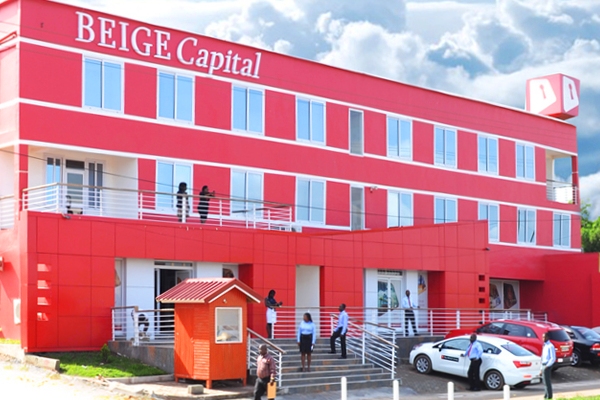
That goes without saying. Also, lots of Ghanaians are beginning to see that the individuals who are coming here from outside are people with the same expertise that they have. Naturally, some of them were schoolmates in school and if they are doing some things, why don’t we do them ourselves.
You have built a business, Beige Group. You define yourself as someone who is a business builder. Can you describe how you built your business and what you do?
The Beige Group, which I formed, is a private equity firm that is specializing in building businesses. Our hope is to be able to build world-class and very sustainable businesses within Ghana. I’m doing this with a lot of passion and in the last five years, we’ve been able to create seven different businesses across different sectors of industry. We have establishments in real estate, hospitality, logistics, mining, banking and finance.
Our flagship amongst these seven companies is Beige Capital which is one of the leading savings and loans companies in the country right now. That’s an institution that we established in 2008 and it has been growing in leaps and bounds since then.
What has made Beige Capital successful and how does it differentiate from other companies in the same business?
We started Beige Capital simply as a money-lending institution in 2008. It was not too radically different from the other institutions that were in the system but we were focused on our growth plan and where we wanted to be. From day one when we started the company, I set up an agenda to develop systems because I wasn’t looking at just having a business that would feed a few of us but in establishing a platform that would be a benchmark for increases. I would say that we spent about the first two years firming up the systems that would survive us as an institution. Then we started growing on that solid foundation.
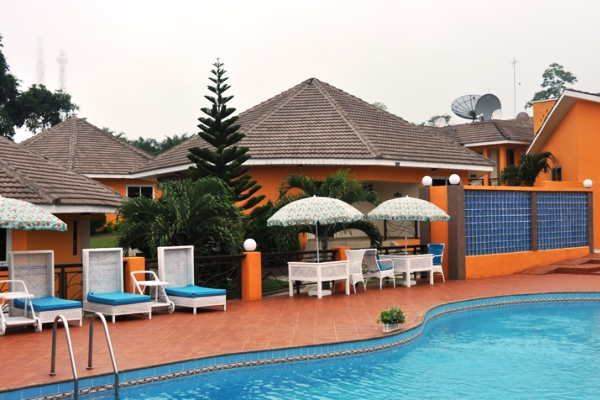
Your clients became part of your business in a way?
Yes, we had a couple of clients that we entered into venture partnerships with because we told ourselves that we would want to grow with those clients at that time. We can mention about two or three clients whose businesses have grown alongside the growth of Beige Capital. But I think what really accounts for the success of Beige Capital is the strength of the internal control systems that we laid at the time of start-up. I would also say that we had leadership that was daring and adventurous and they were people who were willing to sacrifice everything to drive the company where it is. That, I would say, largely accounts for the success of Beige Capital as of today. What we see at Beige Capital today is for me the very little signs of what we really want to do. The next two years of Beige Capital will be even more phenomenal because we have set Beige Capital as a 10-year project. For me, it’s a 10-year project. By the tenth year of Beige Capital, we should be one of the most amazing financial institutions that has been developed in Ghana.
What exactly do you want to develop in your business?
We are pursuing what we call a deposit-led approach to banking. We are taking Beige Capital everywhere that banking is practicable in any form, whether it is the form of a kiosk, a big edifice, or a mobile van. By the end of 2015, we will be in every business district across Ghana. That is the first thing we are doing.
We are also going to be evolving financial service modules that will suitable to every person that is an economic entity, whatever the level of business. That is the direction of Beige Capital in the next two years.
So it’s the flexibility in location and the kind of people that you are working with.
Yes, and the level of financial intermediation that we are going to have between bankers and the bank.
Do you have anything else to add about Beige Capital?
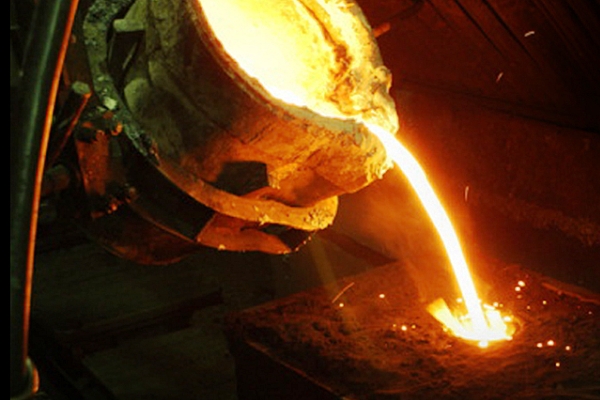
We are also open to equity partnerships as long as they make financial sense to us at Beige Capital. We believe that there are good returns in the business and there will continue to be good returns. The central bank is playing a very important role in the regulation of the financial services industry and they require all of us players to increase our stated capital. Because we aim to possibly be a big bank in the future, we would be happy to form equity partnerships with interested investors who share in our direction.
What kind of investors would this be?
They could be private equity investors who are looking for equity partnerships over a five-year period. They don’t necessarily need to be Ghanaian. They could be foreign but they would share in our drive and our direction. They must understand the business of finance at the informal sector level.
You have several activities with the Beige Group that are quite interesting. One of them is real estate with Beige Crest, which is a residential and commercial entity that you are developing. Can you tell us about this?
One of our investor units is called Beige Home and was recently renamed Babbel. Beige Home is on the path to developing what we call the January Cities Project. The January Cities Project is a mix of five cities that we plan to develop in the next twenty years in Ghana. These five cities will be located on the outskirts of already-developed and very-populated districts in Ghana. We have chosen Accra, Kumasi, and Tamale. We have chosen these areas because they are regions of strategic importance in regards to the general politics of Ghana and the economic direction of Ghana.
The first of the five cities to be rolled out is the Beige Crest. The Beige Crest is a city that will sit on a land size of about 4,500 hectares. The project would have about 2,500 residences made up of 50,000 homes. We are combining our expertise and those relating to all the municipal assemblies that govern the areas we have chosen. These districts that we have planned have been incorporated into the national development plan.
So you are working closely with the ministry of housing.
Yes, we are working with everyone related to that.
Will there be commercial areas, shopping centers, etc?
There will be a lot of that and schools, etc., even cemeteries.
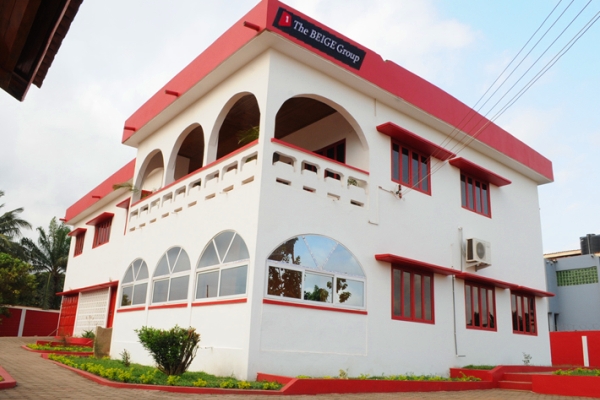
What will be the impact of this type of project? Have you been inspired by other projects in the world?
The inspiration for this project came from the story of Midrand in South Africa, as well as the story of Sandton in South Africa. Those were new cities that were developed and pre-planned from the beginning. Our intention is to have a city development module that will avoid all the mistakes that have happened in all the urban areas that are developed without planning. We expect that by the end of the construction of these cities, there will be a more organized process of living in the areas that are designated that will make our cities even more beautiful and attractive.
When will the first residents begin to live there?
Our first residents will be coming in December 2014. We will be going in phases.
Another area you are working in is the mining sector. You mentioned you are working in the gold sector. Can you tell us more about this?
Currently we do medium-sized mining and alluvial. A company called Brownball, which is a fully-owned investment asset of the Beige Group, mines alluvial deposits in the Western and Ashanti regions. The company is also a mine asset collector. What we do is we are currently holding about five different large-scale concessions on which prospecting has been done to various stages. On three of them, we are currently processing a mine lease and we are hoping to look for external partnerships to process these into large-scale mines.
What kind of partnerships would you be interested in?
We are looking for partners with an interest in gold mining and rock mining. We would not have the financial capacity to develop all of these mines. There are five different large-scale concessions and what we want is partners with an interest in mining to come on board or to hold possibly a significant stake in these mines and develop them to full-scale mines.
What stage are you in regarding finding partners?
Currently we have a Turkish group that is engaging us on two of those concessions. We also have an Italian group that is talking to us about one of those. But we don’t have any final agreements with anyone yet and we would be happy to open up discussions with other potentially-interested people.
What is a key point for closing a deal with a partner?
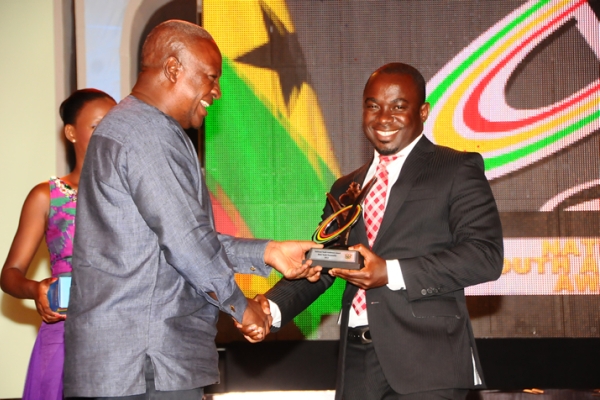
The mine-share agreement is crucial, meaning what is in it for you and what is in it for us. I think the least of these concessions has a reserve estimation of about 500,000 ounces and about three of them have a reserve estimation of about 2 million ounces average. That is a lot of money. If we have a partner that has the capacity to raise the funding that will be required to set up such a mine, we are willing to hold minority interests in such a mine.
Who are your competitors?
There are other mining institutions but we don’t see ourselves as in competition with anyone because we are currently not mining at that level. We still have lots of reserves un-mined so we are not in competition. The only bane is the falling gold price.
Do you have anything else to add about your other businesses?
We are very keen on partnerships, either in banking and finance, real estate, or mining. With the other business interests that we have, we are very comfortable with the levels of success that we are achieving right now.
What is your vision for the future?
In the next five years, the Beige Group would be a signature institution that is spearheading the growth of entrepreneurship in Ghana. We would definitely have succeeded in expanding the frontiers of our businesses in the various areas that we find ourselves in Ghana and beyond. We see a big opportunity for private-public partnerships in areas such as infrastructure development, banking and finance, and general community development. We see a big opportunity for the Beige Group there.
Our medium-term goals for the Beige Group are simple. We want to enlarge the frontiers of our bank. We want to roll out the city developments that we are planning. We want to start the partnerships that we desire for our mining program. When those are settled, we will move on to other areas, hopefully in 2015.